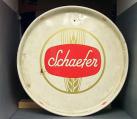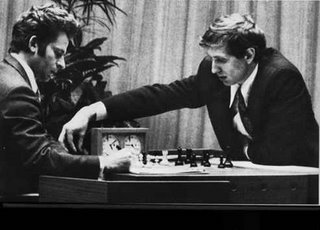
We went to hear one of our favorite guitar players, and got a few lessons
about how not to put on a show.
The Performer:Queens native Leslie West (born Leslie Weinstein) was a favorite of Seventies hard rock fans, starting with Long Island's The Vagrants, then Mountain (which he co-founded along with Bronx-born bassist Felix Pappalardi), as well as his subsequent supergroup West, Bruce and Laing. He was also a BIG guy, and when he played a Gibson Les Paul guitar it almost looked like a mandolin. In 1975 he had just released a solo album, "The Great Fatsby."
The Venue:Sometimes dubbed "Staten Island Country Club" due to its not-terribly-rigorous academic reputation, the Community College occupied a bunch of cheaply-constructed, ugly concrete buildings along the Staten Island Expressway near Todt Hill. SICC was a popular place for small concerts and parties, due to its proximity to both Brooklyn and New Jersey.
The Show:Our tickets read: "The Leslie West Band and The Point." It was general admission, and we found seats in the fourth row. At about 8:00PM the first opening act came on, but it was not The Point. I won't tell their name, since they seemed like a bunch of kids, but they were pretty lame. Now, opening acts at rock concerts have a tough job, especially when the bulk of the crowd consists of a bunch of rowdies in their late teens who have been drinking - a lot. In such a situation, the best thing to do is play your set and get out of there, hopefully without getting hit by a flying object. When people started booing, the vocalist made a major mistake - he told us that there were going to be THREE opening acts! Assuming an hour a set, plus setup times, that meant the big guy wouldn't be up there until after midnight. Curses flew, and from the row in front of my a guy dropped his pants and showed his behind at the would-be David Lee Roth. Cheers erupted. I almost started feeling sorry for the kid. He tried getting the audience to clap along by making pathetic pleas like "If you don't clap, that means
you don't like Leslie West." There are few things as pathetic as a failing rock singer. It's like Alfalfa singing "The Barber of Seville" in "The Little Rascals."
The second band was, in fact, The Point, a group with a local following, who were good. Best of all, they didn't act like buffoons.
Then came probably the worst band I have ever heard live: American Tears. They were actually TOO loud, even for West's equipment, to the point where everything was distorted. But the worst part of the show was the bassist, a thin guy dressed in black leather who constantly wiggled around. Rumors went through the crowd that his nickname was "Beat Me Charlie," and I can imagine why. This crowd was not the type who would turn out for the New York Dolls, needless to say, and Charlie (or whatever his name was) was heckled in unison. Whoever put together this lineup of acts did not know the audience!
West finally took the stage accompanied by a bassist and drummer, and did about an hour of mostly cover tunes, including Garland Jeffreys's "Wild in the Streets" and "House of the Rising Sun" ("The first song I ever learned on the guitar"). His playing was solid, but we had the impression that his heart just wasn't full into performing that night (perhaps he himself had sat through American Tears?)
Staten Island Community College merged the next year with Richmond College in Saint George to form the College of Staten Island. In 1993 the City University opened a new campus for the college on the site of the infamous Willowbrook State School. West has continued to perform, and is (regretfully, in my humble opinion) a frequent guest of Howard Stern.










